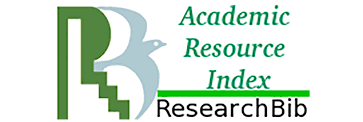Conceptualization of Communication Ethics Framework for Inter-religious Harmony
Study of Inter-Religious Harmony in the City of Kediri
Abstract
This research aims to show Islamic views through the Qur'an and Hadith regarding inter-religious harmony and then create a framework for the formation of communication ethics which can possibly be formed through reformulation of contextual interpretive meaning through Islamic views, historical descriptions and assessments regarding the ethics of inter-religious communication according to the textual Islamic view as a formula framework for an ethical approach to inter-religious communication, which not only can be seen for its validity philosophically, logically, and can be tested analytically, but can also be used as a practical reference in universal inter-religious communication practices considering the current conditions of inter-religious harmony. Paul Receur's Hermeneutic Phenomenology Approach is a form of approach that will be used to examine several frameworks of Al-Qur'an and Hadith texts relating to inter-religious harmony in this research. Research results show that the ethical approach in interreligious communication according to the textual Islamic perspective, is an approach or method by which people of different religions should communicate with each other in all matters, anywhere and in any relationship, optimally making ethicality a perspective and basis for consideration. Islam textually considers it important and has regulated broadly and in detail the approach by which people of different religions should communicate with each other in all matters, wherever and in any relationship, optimally making ethicality a point of view and basic considerations.
Downloads
References
Achmad, Amrullah. Dakwah Islam Dan Perubahan Sosial. Yogyakarta: PLP2M, 1983.
Al-Khatib, Syaikh Abdul Hamid. Ketinggian Risalah Nabi Muhammad. Edited by alih bahasa H. Bey Arifin. Bulan Bintang, 1976.
Anshari, Saifuddin. Ilmu, Filsafat Dan Agama: Pendahuluan Pendidikan Agama Islam Di Perguruan Tinggi Umum, 1979.
Blake, Reed H., Haroldsen, and O Edwin. Taxonomy of Concepts in Communication. Husting House Inc, 1979.
Dasuki, Hafizh. “Ensiklopedia Islam.” Jakarta: PT. Ichtiar Baru, 2004.
Denzin, Norman K, and Yvonna S Lincoln. The Sage Handbook of Qualitative Research. Sage, 2002.
Devito, Joseph A. Communicology: An Introduction to The Study of Communication. New York: Harper and Row, 1978.
Hakim, Khilafah. Hidup Yang Islami. Jakarta: CV. Rajawali, 1995.
Hamka. Filsafat Hidup. Umida, 1985.
Krech, David. Individual In Society. New York: McGraw-Hill, 1962.
Luis, Hammer. Value and Man: Reading In Philosoph. McGraw-Hill, 1996.
Mardjono, Hartono. Reformasi Politik Suatu Keharusan. Jakarta: Gema Insani, 2004.
Mukti, Ali. “Religion and Development in Indonesia.” Internation Reveiw of Mission 63, no. 251 (1974): 400–416.
Natsir, Mohammad, and Saifuddin Anshari. Islam Dan Kristen Di Indonesia. Media Dakwah, 1969.
Notthingham, Elizabeth. Agama Dan Masyarakat. Rajawali Press, 1985.
O’dea, Thomas F. Sosiologi Agama - Penerj. Tim Yasogama, 1985.
Radhakrishnan, Sarvepalli, and Charles A. Moore. A Source Book In Indian Philosophy. Amerika Serikat: Princeton University Press, 1957.
Rasjidi H.M. Filsafat Agama. Bulan Bintang, 2001.
Samovar, Larry A, Richard E. Porter, and Nemi C. Jain. Understanding Inttercultural Communication. Wadsworth Publishing Company, 1981.
Shahrur, Muhammad. Al-Kitab Wa Al-Qur’an: Qira’ah Mu’asirah. Damaskus: Al-Ahali, 1990.
Smith, Wilfred Cantwell. Perbandingan Agama. Edited by Penerjem. Farichin Chumaid. IAIN SGD, 1983.
Sou’yb, Joesoef. Agama-Agama Besar Di Dunia. Pustaka Alhusna, 1983.
Steenbrink, Kare. Perkembangan Teologi Dalam Dunia Kristen Modern. Yogyakarta: IAIN Sunan Kalijaga Press, 1987.
Wach, Joachim. Ilmu Perbandingan Agama. Jakarta: Rajawali, 1984.
Wallace, and Wolf. Contemporary Sociological Theory: Continuing the Classical Tradition. Prentice-Hall, 1986.
Copyright (c) 2023 Proceedings of International Conference on Da'wa and Communication

This work is licensed under a Creative Commons Attribution 4.0 International License.
![]()
Author(s) who publish with this proceeding agree to the following terms:
Author(s) retain copyright and grant the journal right of first publication with the work simultaneously licensed under a Creative Commons Attribution License that allows others to share the work with an acknowledgement of the work's authorship and initial publication in this proceeding.
Author(s) are able to enter into separate, additional contractual arrangements for the non-exclusive distribution of the journal's published version of the work (e.g., post it to an institutional repository or publish it in a book), with an acknowledgement of its initial publication in this proceeding.
Author(s) are permitted and encouraged to post their work online (e.g., in institutional repositories or on their website) prior to and during the submission process, as it can lead to productive exchanges, as well as earlier and greater citation of published work (See the Effect of Open Access).
The Proceedings of International Conference on Da’wa and Communication by the Da’wa and Communication Faculty of the Sunan Ampel State Islamic University Surabaya, Indonesia is licensed under a Creative Commons Attribution-ShareAlike 4.0 International License.





























